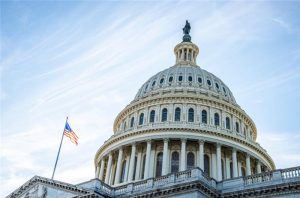In the budget on 30 October 2024, the government will announce further details on the abolition of the non-domiciled regime.
The current non-domiciled regime requires certain taxpayers to segregate their offshore capital to ringfence clean capital from other non-UK taxed capital.
“Clean capital” is any capital that can be used in the UK without being subject to an additional UK tax charge and broadly includes any capital that arose prior to the individual arriving in the UK or funds that have already been subject to UK tax.
Offshore investment accounts require certain operational procedures, including capital and income segregation, to ensure clean capital can always be accessed without instead being deemed other capital that may be taxed on transfer to the UK.
Post 6 April 2025
From 6 April 2025, there is likely to be no need for new arrivals to the UK to consider the offshore segregation of their clean capital. This is because the newly proposed ‘4-year Foreign Income & Gains’ regime currently has no concept of taxable remittances and rules surrounding capital transferred to the UK.
However, existing residents that may have previously been considered non-domiciled and taxed on the remittance basis, will still need to exercise caution.
This will likely be because capital that arose before 6 April 2025 will be assessed under the current rules and so the same account segregation will be needed after April 2025. This ensures that historical clean capital can be used in the UK without being tainted by other non-UK taxed capital.
US Tax Considerations
For US taxpayers resident in the UK, these concepts are even more important because of the risk of being taxed in both the US and UK when transferring non-clean capital to the UK.
This can happen because US tax on non-UK investments arose on an annual basis. Therefore, if offshore accounts have not been properly segregated, a UK tax charge may arise at the point of remittance to the UK after April 2025.
If the tax event in the US (calculated on income and gains at the time realised) and UK (on remittance to the UK) occurs in different tax years, then it may be difficult for your tax advisor to claim double taxation relief or to offset foreign tax credits.
This can result in double tax on your investment returns because you need access to capital for your UK requirements.
Getting Organised
Following the announcements on 30 October and until 6 April 2025, there will be two main areas to consider for organising offshore capital:
1. Transitional Reliefs:
There will be transitional reliefs to help non-domiciled UK residents. These will include reduced rates of tax and a revised Temporary Repatriation Facility (TRF) to help those access more offshore capital in the UK at a lower rate of tax.
The timing of any asset disposals and subsequent transfers to the UK will be key especially for US taxpaying clients to ensure the TRF tax can be creditable against US taxes due on the same capital. The US tax calendar year will always need to be considered alongside the UK tax fiscal year from April to April.
2. Account Structuring:
Offshore investment accounts should be organised to segregate any pre and post 6 April 2025 investment activity. This will ensure capital can be accessed in the UK and reduce the risk of double taxation for US taxpayers in the UK.
This process is like the deemed domicile changes that were effective from 6 April 2017 and for those tax resident in the UK now that still need to organise and segregate legacy offshore capital that arose prior to April 2017.
Contact us
Each of these complex areas will be unique to your current circumstances and how your offshore accounts and investments are currently set up.
Please do reach out if you would like to discuss these points further and how we might be able to help you ahead of April 2025.
Contact: edward.johnson@londonandcapital.com.
PLEASE NOTE: London & Capital does not provide tax advice, our Tax and Advanced team collaborates with you and your London & Capital Adviser to structure your wealth the most tax-efficient way possible.




